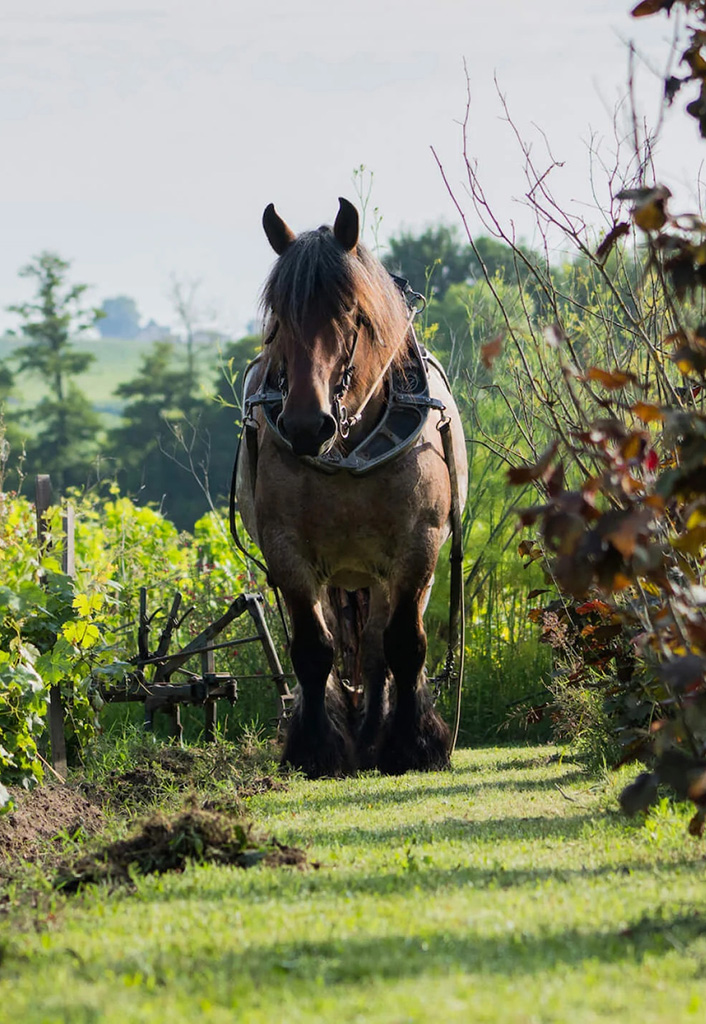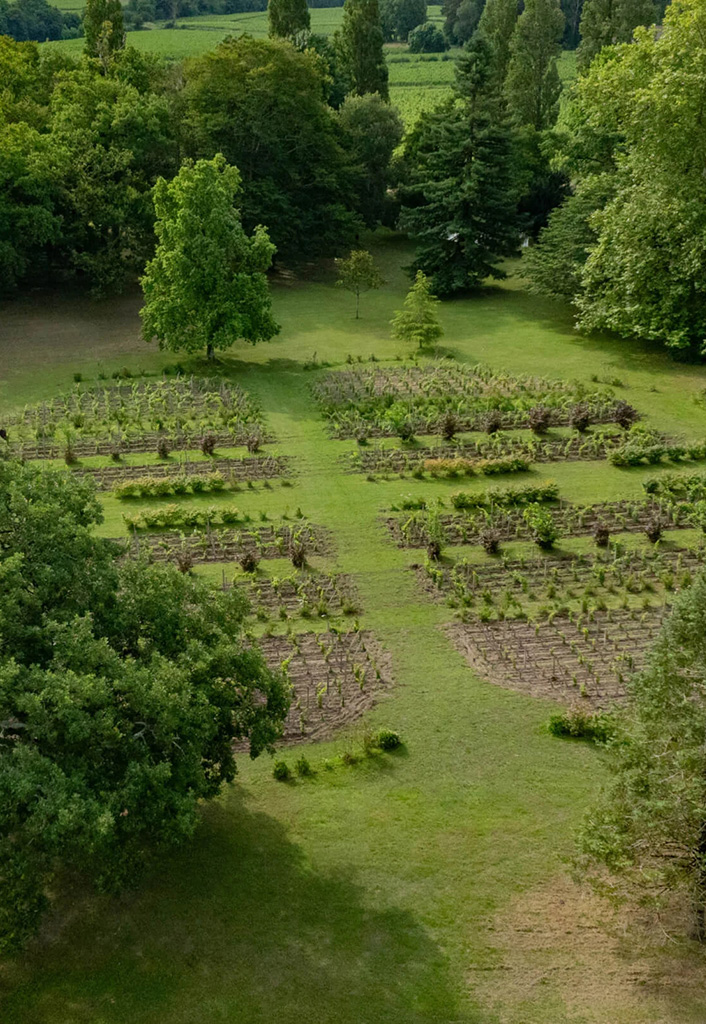Environmental Commitments and Sustainable Practices
Certifications and Labels
The High Environmental Value (HVE) and ISO 14001 certifications, obtained since 2013, reflect the commitment of Dassault Vineyards to preserving their environment and ensuring the sustainability of their ecosystem.
These commitments are notably reflected in the preservation of biodiversity, promoted through concrete measures such as:
- The installation of shrub hedges to encourage beneficial wildlife,
- The creation of a hunting and wildlife reserve across all estates,
- The establishment of an agroecological wetland area along a classified stream.
An agroecological approach is also implemented in vineyard management practices, including:
- Controlled grass cover between rows,
- Sowing of legumes and grasses,
- Use of plant cover as green manure.
Since 2016, all estates (Château Dassault, Château Faurie de Souchard, and Château La Fleur) have been certified High Environmental Value Level 3 and Bee Friendly (since 2021) for their contribution to biodiversity and pollinator protection.

Sustainable Practices and Innovation
Since 2015, a ten-year plan to restructure 25% of the vineyard has been implemented.
Following an in-depth study of the estates’ terroirs after various acquisitions, a replanting and uprooting plan was adopted to match each grape variety with the most suitable soil.
In the context of climate change, this also allowed for the development of later-ripening varieties such as Cabernet Franc and Cabernet Sauvignon.
In 2022, the infrastructures were modernized through:
- The inauguration of a 3,500 m² winery spread over three levels, enabling gravity-fed processes (vatting and barrel filling),
- Parcel-based vinification in temperature-controlled stainless-steel vats to preserve the identity and richness of each terroir.
- The establishment of R&D spaces in connection with an internal vine nursery (ensuring the conservation of the vines’ genetic heritage),
- A cellar dedicated to barrel, cask, and amphora aging, benefiting from optimal humidity conditions.
The welcoming of PhD students and researchers, invited to study biodiversity, vine genetics, and soil microbiology, regularly strengthens the scientific foundation of this approach.
Dassault Vineyards have placed Corporate Social Responsibility at the heart of their winemaking project for several years and are formalizing this commitment with the Level 1 certification in 2025.
This commitment reaffirms their determination to act for a more sustainable future, by combining:
- Reduction of the carbon footprint,
- Preservation of biodiversity,
- Responsible purchasing,
- Well-being at work.



